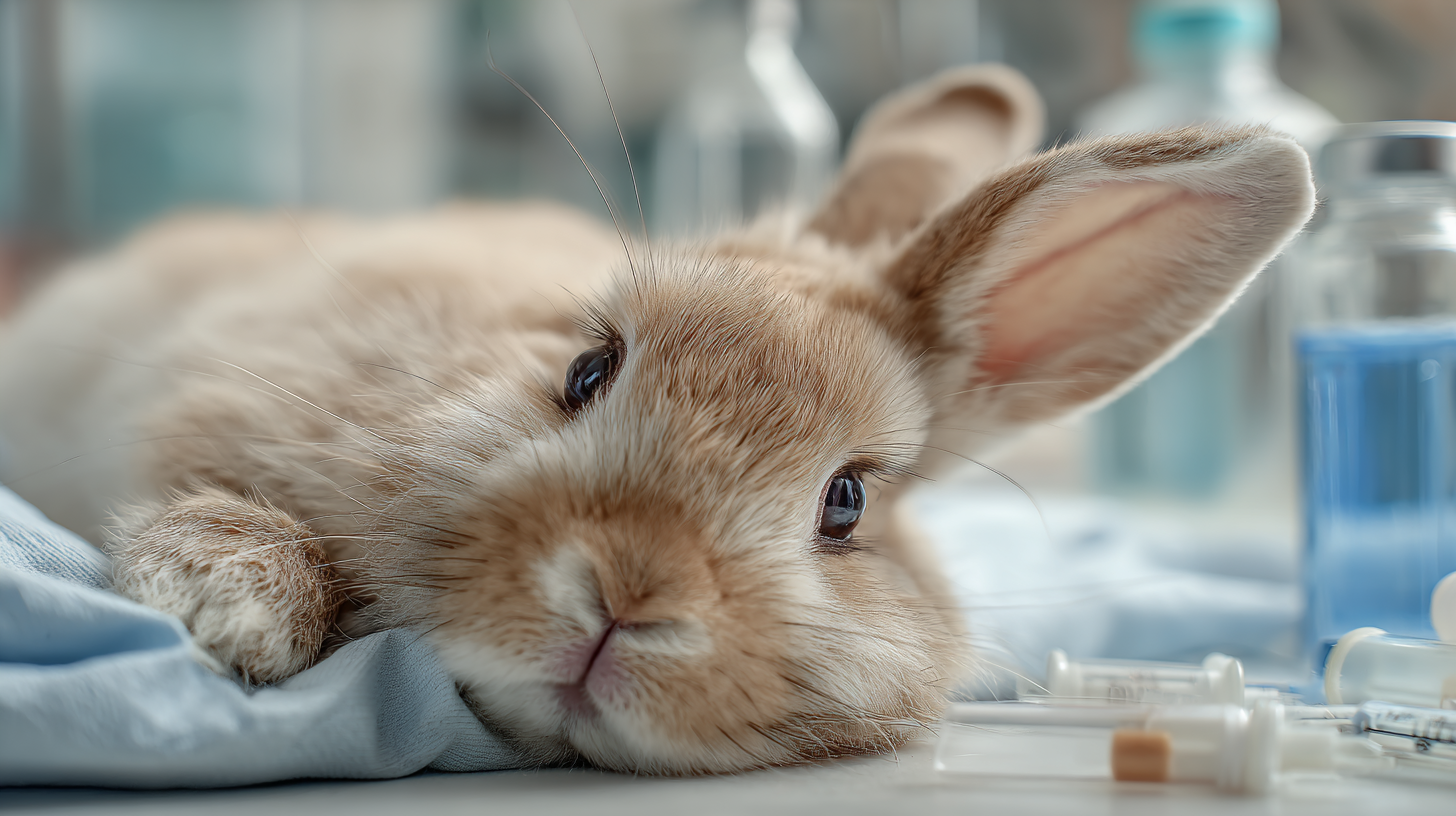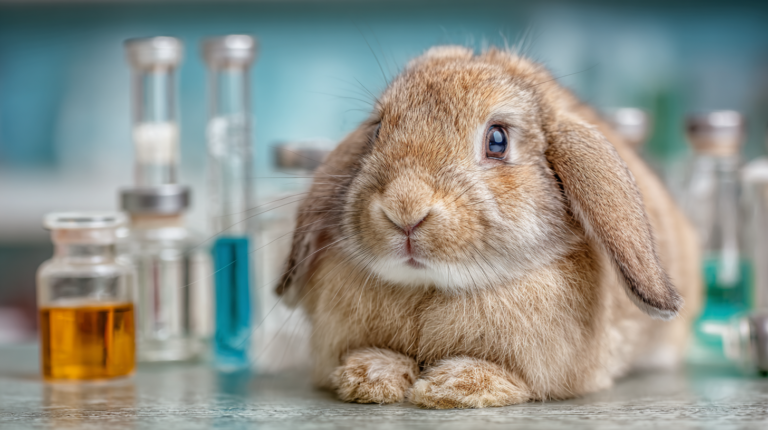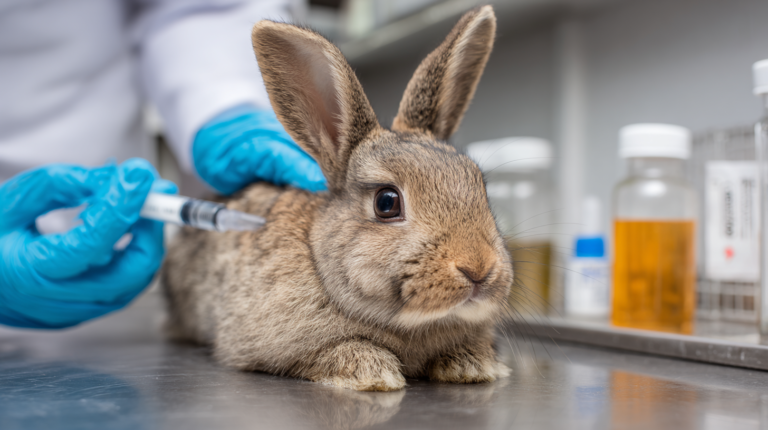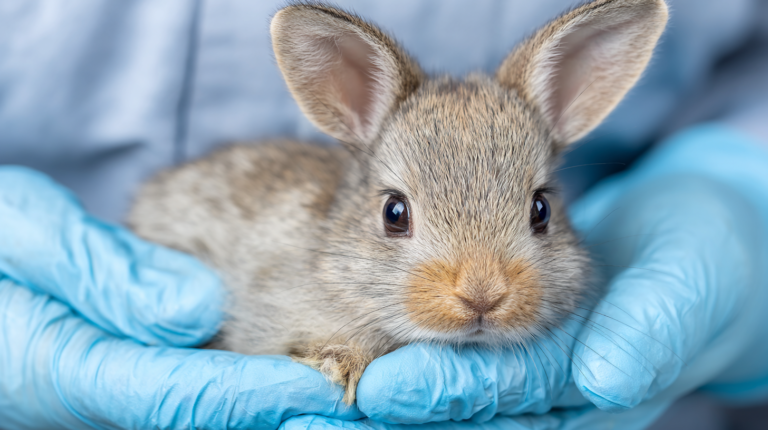Enteritis in rabbits can be life-threatening. Learn the 6 warning signs of rabbit enteritis, causes, treatment options, and prevention tips from veterinary experts.
Table of Contents
Enteritis in rabbits is one of the most serious gastrointestinal conditions that can affect your beloved pet, and recognizing the warning signs early could mean the difference between life and death. This inflammatory condition of the small intestine affects thousands of domestic rabbits annually, with mortality rates reaching up to 90% in severe cases if left untreated. Understanding enteritis in rabbits, its symptoms, and immediate care protocols is essential knowledge for every rabbit owner.
Unlike other common digestive issues in rabbits, enteritis develops rapidly and can progress from mild discomfort to life-threatening complications within hours. The condition disrupts the delicate balance of your rabbit’s digestive system, leading to severe dehydration, electrolyte imbalances, and potentially fatal outcomes. However, with proper knowledge and swift action, many cases of rabbit enteritis can be successfully managed when caught early.
Understanding Enteritis in Rabbits: The Silent Threat
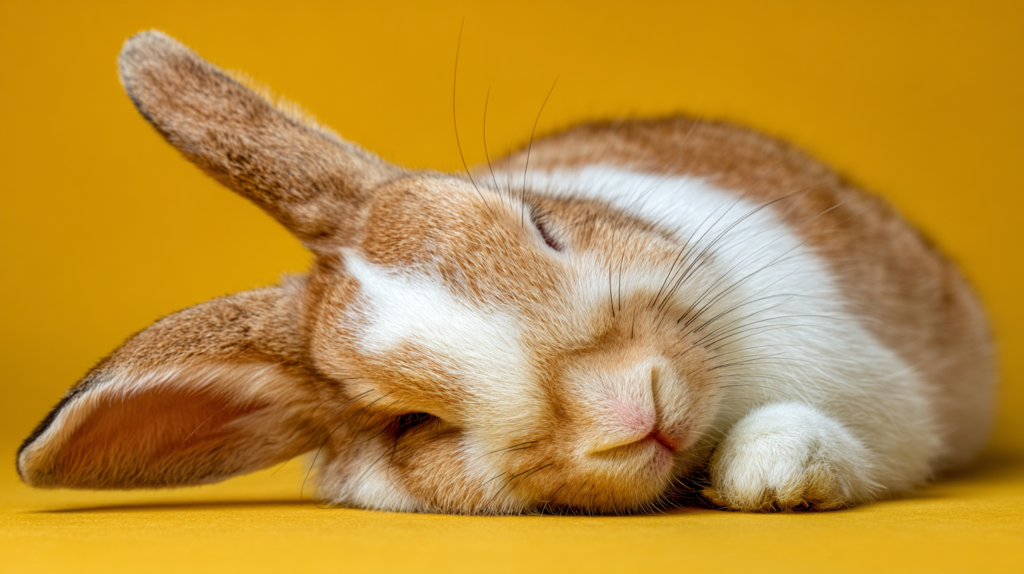
Enteritis in rabbits refers to inflammation of the small intestine, which disrupts normal digestive processes and can quickly become systemic. The condition is particularly dangerous because rabbits have a unique digestive system that relies heavily on a delicate balance of beneficial bacteria in their cecum. When this balance is disrupted, harmful bacteria can proliferate rapidly, producing toxins that cause severe illness.
The rabbit’s digestive system processes food through a complex two-stage process called cecotrophy, where they consume special soft droppings called cecotropes to extract maximum nutrition. When enteritis occurs, this entire system becomes compromised, leading to malnutrition, dehydration, and toxin buildup that can overwhelm the rabbit’s organs.
Dr. Sarah Mitchell, a veterinary specialist in exotic animal medicine, explains: “Enteritis in rabbits is often misunderstood by pet owners because the symptoms can initially appear mild. However, the condition progresses exponentially, and what seems like minor digestive upset in the morning can become a veterinary emergency by evening.”
According to recent veterinary studies, enteritis affects approximately 15-20% of domestic rabbits at some point in their lives, with higher incidence rates in rabbits under six months old and those over five years of age. The condition has multiple causes, ranging from dietary indiscretions to bacterial infections, making prevention strategies crucial for rabbit owners.
The 6 Critical Signs of Enteritis in Rabbits
| Sign/Symptom | Description | Severity Level | Time to Develop |
|---|---|---|---|
| Watery Diarrhea | Severe, liquid feces that may contain mucus or blood | Critical | 2-6 hours |
| Loss of Appetite | Complete refusal to eat hay, pellets, or treats | Critical | 1-4 hours |
| Lethargy | Extreme weakness, reluctance to move or respond | Critical | 4-8 hours |
| Dehydration | Sunken eyes, dry mouth, skin tenting when pinched | Critical | 6-12 hours |
| Abdominal Pain | Hunched posture, grinding teeth, reluctance to be touched | Moderate | 2-6 hours |
| Temperature Changes | Body temperature below 100°F or above 104°F | Moderate | 4-12 hours |
1. Severe Diarrhea and Abnormal Cecotropes
The most recognizable sign of enteritis in rabbits is the sudden onset of severe, watery diarrhea that differs significantly from normal rabbit droppings. Healthy rabbit feces should be round, firm pellets that break apart easily when pressed. During enteritis, you’ll notice loose, watery stools that may contain mucus, blood, or undigested food particles.
Equally important is the change in cecotropes, the soft, grape-like droppings that rabbits normally consume directly from their anus. In cases of enteritis, these cecotropes become malformed, excessively soft, or may be completely absent. The absence of cecotropes is particularly concerning because it indicates severe disruption of the cecal fermentation process.
The diarrhea associated with enteritis typically has a distinct, foul odor that’s noticeably different from normal rabbit waste. This odor results from the fermentation of undigested food and the proliferation of harmful bacteria in the digestive tract. The volume of diarrhea can be substantial, leading to rapid dehydration if not addressed immediately.
2. Complete Loss of Appetite (Anorexia)
Rabbits experiencing enteritis will demonstrate a complete or near-complete loss of appetite, medically termed anorexia. This isn’t simply being picky about food – affected rabbits will refuse their favorite treats, fresh vegetables, and even high-quality pellets. The loss of appetite occurs because the inflamed intestinal lining causes significant discomfort, and the rabbit’s natural instinct is to stop eating to prevent further irritation.
The progression of appetite loss in enteritis is typically rapid and dramatic. A rabbit that was eating normally in the morning may completely refuse food by the afternoon. This rapid onset distinguishes enteritis from other digestive issues that may cause gradual appetite changes over several days.
It’s crucial to understand that for rabbits, going without food for more than 12 hours can lead to a secondary condition called gastrointestinal stasis, where the digestive system essentially shuts down. This creates a dangerous cycle where the enteritis prevents eating, which then causes stasis, further complicating the condition and reducing the chances of recovery.
3. Lethargy and Behavioral Changes
Healthy rabbits are naturally active, curious animals that engage in regular grooming, exploration, and play behaviors. Enteritis causes significant behavioral changes, with affected rabbits becoming increasingly lethargic and withdrawn. They may remain hunched in a corner of their enclosure, showing little interest in their surroundings or normal activities.
The lethargy associated with enteritis is profound and noticeable even to casual observers. Rabbits may appear to be sleeping more than usual, but closer observation reveals they’re actually lying still due to discomfort and weakness. They may also demonstrate unusual positioning, such as pressing their abdomen against cool surfaces or stretching out in an attempt to relieve intestinal pain.
Changes in social behavior are also common indicators of enteritis. Normally social rabbits may become irritable or aggressive when handled, while typically independent rabbits might seek more attention from their owners. These behavioral changes reflect the significant discomfort and stress the rabbit is experiencing due to the intestinal inflammation.
4. Dehydration and Physical Weakness
Dehydration develops rapidly in rabbits with enteritis due to the combination of diarrhea, vomiting (when present), and decreased fluid intake. The signs of dehydration in rabbits include sunken eyes, dry or sticky mucous membranes, and decreased skin elasticity. To test for dehydration, gently pinch the skin between your rabbit’s shoulder blades – in a well-hydrated rabbit, the skin should immediately return to its normal position.
Physical weakness accompanies dehydration and is evident in the rabbit’s posture and movement. Affected rabbits may appear wobbly when walking, have difficulty maintaining their normal upright posture, or may collapse when attempting to move. The weakness results from electrolyte imbalances caused by the loss of fluids and nutrients through diarrhea.
The combination of dehydration and weakness creates a dangerous cycle where the rabbit becomes increasingly unable to seek water or food, accelerating the progression of the condition. This is why enteritis emergencies require immediate veterinary intervention rather than home treatment approaches.
5. Abdominal Pain and Discomfort
Rabbits with enteritis experience significant abdominal pain due to intestinal inflammation and the accumulation of gas and fluid in the digestive tract. Unlike dogs or cats that may vocalize when in pain, rabbits typically express discomfort through subtle body language changes that require careful observation to detect.
Signs of abdominal pain in rabbits include tooth grinding (different from normal, quiet grinding during rest), hunched posture with the back arched, and reluctance to move or change positions. The rabbit may also press its abdomen against the ground or repeatedly shift positions in an attempt to find comfort. Some rabbits may show signs of restlessness, moving frequently but without apparent purpose.
The pain associated with enteritis is often accompanied by bloating, where the rabbit’s abdomen appears distended or feels firm when gently palpated. This bloating results from the accumulation of gas produced by harmful bacteria and the disruption of normal digestive processes. The presence of abdominal pain and bloating together strongly suggests enteritis and requires immediate veterinary attention.
6. Hypothermia and Shock Symptoms
In advanced cases of enteritis, rabbits may develop hypothermia, where their body temperature drops below normal levels. This occurs because the body’s energy reserves are depleted, and the metabolic processes that generate heat are compromised. Normal rabbit body temperature ranges from 101-104°F (38.3-40°C), and temperatures below this range indicate a serious emergency.
Signs of hypothermia in rabbits include cold ears and feet, pale or blue-tinged mucous membranes, and extremely lethargic behavior. The rabbit may feel cold to the touch and may shiver or appear to be trembling. In severe cases, the rabbit may become completely unresponsive or appear to be in a coma-like state.
Shock symptoms may also develop, including rapid or weak pulse, shallow breathing, and unresponsiveness to stimuli. These symptoms indicate that the rabbit’s cardiovascular system is failing to maintain adequate blood circulation, often due to severe dehydration and toxin buildup. The presence of hypothermia or shock symptoms represents a veterinary emergency requiring immediate professional intervention.
Primary Causes of Rabbit Enteritis
| Cause Category | Specific Factor | Risk Level | Prevention Method |
|---|---|---|---|
| Dietary | High-carbohydrate foods (bread, crackers, sugary treats) | High | Avoid completely, stick to hay-based diet |
| Dietary | Sudden diet changes | High | Gradual transitions over 7-14 days |
| Bacterial | E. coli overgrowth | High | Maintain proper hygiene, clean housing |
| Bacterial | Clostridium infections | Medium | Probiotics, avoid antibiotics unless necessary |
| Environmental | Stress from handling or environment changes | Medium | Minimize handling, consistent routine |
| Age-Related | Young rabbits under 6 months | High | Extra monitoring, quality diet, clean environment |
| Antibiotic | Oral antibiotics disrupting gut flora | Medium | Use only rabbit-safe antibiotics as prescribed |
| Parasitic | Coccidia infections | Low | Regular fecal exams, clean living conditions |
Understanding the underlying causes of enteritis in rabbits is essential for both treatment and prevention. The condition can result from various factors, often working in combination to disrupt the delicate balance of the rabbit’s digestive system.
Dietary factors represent the most common cause of enteritis in domestic rabbits. Sudden changes in diet, particularly the introduction of new vegetables, fruits, or pellets, can disrupt the bacterial balance in the cecum and small intestine. Foods high in simple carbohydrates, such as bread, crackers, or sugary treats, are particularly problematic because they promote the growth of harmful bacteria while suppressing beneficial microorganisms.
Bacterial infections, particularly those caused by Clostridium species, are another significant cause of enteritis in rabbits. These bacteria produce potent toxins that damage the intestinal lining and cause the severe symptoms associated with the condition. Bacterial enteritis can develop secondary to other stressors or may result from exposure to contaminated food or water sources.
Stress plays a crucial role in the development of enteritis, as it can suppress the immune system and disrupt normal digestive processes. Common stressors include environmental changes, transportation, introduction of new pets, loud noises, or changes in routine. Rabbits are particularly sensitive to stress, and chronic stress can predispose them to various health problems, including digestive issues.
Antibiotic-associated enteritis is a well-documented phenomenon in rabbits, where certain antibiotics disrupt the normal bacterial flora of the digestive tract. Antibiotics that are safe for other animals can be fatal to rabbits, making it crucial to only use medications specifically prescribed by veterinarians experienced in rabbit care.
Immediate First Aid and Emergency Response
When you suspect enteritis in your rabbit, immediate action is crucial for the best possible outcome. The first step is to contact your veterinarian immediately, as enteritis constitutes a veterinary emergency that requires professional treatment. While waiting for veterinary care, there are several supportive measures you can take to help stabilize your rabbit.
Remove all food from your rabbit’s enclosure to prevent further irritation of the digestive tract. This may seem counterintuitive, but continuing to feed a rabbit with enteritis can worsen the condition and increase the risk of complications. The exception is hay, which should be offered in small amounts if the rabbit shows interest, as the fiber can help support normal gut function.
Ensure your rabbit has access to fresh, clean water at all times. Dehydration is one of the most immediate threats in enteritis cases, and maintaining fluid intake is crucial. If your rabbit isn’t drinking voluntarily, you can offer water through a syringe (without the needle) placed at the corner of the mouth, but be careful not to force water into the airway.
Create a quiet, comfortable environment for your rabbit, away from other pets and household activity. Stress can worsen enteritis symptoms, so minimizing environmental stressors is important. Provide soft bedding and ensure the ambient temperature is comfortable, as hypothermia can develop quickly in sick rabbits.
Monitor your rabbit’s vital signs, including body temperature, breathing rate, and level of consciousness. Document any changes in symptoms, the frequency and character of bowel movements, and the rabbit’s overall behavior. This information will be valuable for your veterinarian in determining the appropriate treatment approach.
Veterinary Treatment Options and Prognosis
| Timeline | Phase | Diagnostic Tests | Treatment Actions | Expected Outcome |
|---|---|---|---|---|
| 0-2 Hours | Emergency Assessment | Physical exam, temperature, hydration status | Immediate IV fluid therapy, pain management | Stabilization of vital signs |
| 2-6 Hours | Initial Stabilization | Blood work, fecal examination, electrolyte panel | Continued fluid support, antibiotics if indicated | Improved hydration, reduced toxin levels |
| 6-24 Hours | Active Treatment | Follow-up blood work, urine analysis | Nutritional support, probiotic therapy, monitoring | Appetite may begin to return |
| 1-3 Days | Recovery Phase | Daily monitoring, fecal consistency checks | Gradual diet reintroduction, continued supportive care | Normal fecal pellets, increased activity |
| 3-7 Days | Monitoring Period | Weight checks, appetite assessment | Return to normal diet, medication weaning | Full appetite restoration, normal behavior |
| 1-2 Weeks | Follow-up Care | Complete blood panel, fecal recheck | Dietary adjustments, prevention planning | Complete recovery, prevention measures in place |
| Monthly | Long-term Prevention | Regular health checks, weight monitoring | Diet optimization, stress reduction measures | Continued health, reduced recurrence risk |
Professional veterinary treatment for enteritis in rabbits typically involves a multi-faceted approach addressing the underlying infection, supporting the rabbit’s physiological needs, and preventing complications. The specific treatment protocol will depend on the severity of the condition, the underlying cause, and the rabbit’s overall health status.
Fluid therapy is often the first priority in treating enteritis, as dehydration and electrolyte imbalances pose immediate threats to the rabbit’s survival. Subcutaneous or intravenous fluids may be administered to restore hydration and correct electrolyte abnormalities. The type and amount of fluids used will be determined based on the rabbit’s clinical condition and laboratory test results.
Pain management is an important component of treatment, as the inflammation and distension associated with enteritis cause significant discomfort. Veterinarians may prescribe appropriate pain medications that are safe for rabbits and won’t further compromise digestive function. Proper pain management not only improves the rabbit’s comfort but can also help stimulate appetite and normal behavior.
Antibiotic therapy may be necessary in cases where bacterial infection is suspected or confirmed. However, antibiotic selection for rabbits requires careful consideration, as many antibiotics that are safe for other animals can be harmful to rabbits. Veterinarians experienced in rabbit care will choose antibiotics that target harmful bacteria while minimizing disruption to beneficial gut flora.
Nutritional support becomes important once the acute phase of enteritis has passed. This may involve syringe feeding specially formulated recovery diets or probiotics to help restore normal digestive function. The reintroduction of normal foods must be done gradually and under veterinary supervision to prevent relapse.
The prognosis for rabbits with enteritis depends largely on how quickly treatment is initiated and the underlying cause of the condition. With prompt veterinary intervention, many rabbits can recover completely from enteritis. However, delayed treatment significantly reduces the chances of survival, with mortality rates increasing substantially when treatment is delayed beyond 24 hours of symptom onset.
Prevention Strategies: Keeping Your Rabbit Healthy
Preventing enteritis in rabbits requires a comprehensive approach that addresses diet, environment, and general health maintenance. The most effective prevention strategy is maintaining a consistent, appropriate diet that supports healthy digestive function while avoiding foods that can disrupt the bacterial balance in the gut.
The foundation of rabbit nutrition should be high-quality timothy hay, which should make up the majority of their diet. Hay provides the necessary fiber to maintain normal gut function and helps wear down the rabbit’s continuously growing teeth. Pellets should be high-quality, timothy-based products fed in appropriate quantities based on the rabbit’s age and weight.
Fresh vegetables should be introduced gradually and in appropriate quantities, with leafy greens forming the majority of the vegetable portion. Avoid feeding rabbits foods high in simple carbohydrates, including bread, crackers, and sugary treats. Fruits should be offered sparingly as occasional treats rather than regular dietary components.
Maintaining a consistent feeding schedule helps support normal digestive function and reduces stress on the rabbit’s system. Sudden dietary changes should be avoided, and any new foods should be introduced gradually over several days to allow the digestive system to adapt.
Environmental management plays a crucial role in preventing enteritis by minimizing stress and maintaining hygienic conditions. Provide a clean, spacious living environment with appropriate temperature and humidity levels. Regular cleaning of food and water containers helps prevent bacterial contamination that could contribute to digestive problems.
Regular veterinary check-ups are essential for early detection of health problems that could predispose rabbits to enteritis. Annual examinations allow veterinarians to monitor the rabbit’s overall health, provide appropriate vaccinations, and address any concerns before they become serious problems.
Understanding the Rabbit’s Unique Digestive System
To fully appreciate the severity of enteritis in rabbits, it’s essential to understand their unique digestive anatomy and physiology. Unlike monogastric animals such as dogs and cats, rabbits are hindgut fermenters with a specialized digestive system that has evolved to extract maximum nutrition from fibrous plant materials.
The rabbit’s digestive tract includes a large cecum, a blind-ended pouch where bacterial fermentation occurs. This cecum functions similarly to the rumen in cattle, housing billions of beneficial bacteria that break down cellulose and other complex carbohydrates into nutrients that the rabbit can absorb. The health of these bacterial populations is crucial for normal digestive function.
Rabbits practice cecotrophy, a behavior where they consume special soft droppings called cecotropes directly from their anus. This process allows them to extract additional nutrients from their food, particularly B vitamins and protein produced by cecal bacteria. When enteritis disrupts this process, rabbits can quickly become malnourished even if they continue eating normal food.
The pH balance in the rabbit’s digestive system is carefully regulated, with the cecum maintaining a slightly acidic environment that favors beneficial bacteria while inhibiting harmful microorganisms. When this balance is disrupted, harmful bacteria can proliferate rapidly, producing toxins that cause the symptoms of enteritis.
Understanding this unique digestive system helps explain why enteritis is so dangerous for rabbits and why prevention focuses heavily on maintaining appropriate diet and avoiding sudden changes that could disrupt the bacterial balance.
Long-term Management and Recovery
Recovery from enteritis in rabbits is often a gradual process that requires careful monitoring and management to prevent recurrence. Even after the acute symptoms resolve, the rabbit’s digestive system may remain sensitive for weeks or months, requiring modified diet and care approaches.
The reintroduction of normal foods must be done systematically, starting with small amounts of high-quality hay and gradually adding other foods as the rabbit’s condition improves. This process should be guided by veterinary recommendations and monitored closely for any signs of digestive upset.
Probiotic supplementation may be recommended to help restore the normal bacterial balance in the rabbit’s digestive tract. These supplements should be specifically formulated for rabbits and used under veterinary guidance, as products designed for other animals may not be appropriate.
Long-term dietary management often involves maintaining a more conservative diet approach, avoiding foods that are known to be problematic and focusing on tried-and-true staples that support digestive health. Some rabbits may require permanent dietary modifications to prevent recurrence.
Regular monitoring of the rabbit’s weight, appetite, and bowel movements becomes particularly important during the recovery period. Any changes in these parameters should be reported to the veterinarian promptly, as they may indicate the need for treatment adjustments.
Stress management remains crucial during recovery, as stress can predispose rabbits to digestive problems. Maintaining a calm, consistent environment and minimizing handling except for necessary medical care helps support the healing process.
When to Seek Emergency Care
Recognizing when enteritis requires emergency veterinary intervention can be life-saving for rabbits. Unlike some health conditions that can be monitored at home initially, enteritis symptoms warrant immediate professional attention due to the rapid progression and potentially fatal outcomes.
Any rabbit showing signs of severe diarrhea, particularly if accompanied by loss of appetite or lethargy, should be evaluated by a veterinarian immediately. The combination of these symptoms, especially if they develop rapidly, strongly suggests enteritis and requires prompt treatment.
Signs of dehydration, including sunken eyes, dry mucous membranes, or decreased skin elasticity, indicate that the rabbit’s condition is becoming critical. These symptoms suggest that the rabbit’s body is struggling to maintain normal physiological functions and requires immediate fluid replacement therapy.
The presence of hypothermia, where the rabbit feels cold to the touch or has cold ears and feet, represents a veterinary emergency. Hypothermia in rabbits often indicates that their body’s regulatory mechanisms are failing, and without immediate intervention, the condition can quickly become fatal.
Any rabbit that becomes completely unresponsive or appears to be in shock requires immediate emergency treatment. These symptoms indicate that the rabbit’s cardiovascular system is failing and that intensive treatment is needed to prevent death.
Frequently Asked Questions
Everything you need to know about enteritis in rabbits
How quickly can enteritis kill a rabbit?
Enteritis can be fatal within 24-48 hours if left untreated. The rapid progression is due to severe dehydration, electrolyte imbalances, and toxin buildup. Early recognition and immediate veterinary treatment are crucial for survival.
Can I treat rabbit enteritis at home?
No, enteritis in rabbits requires professional veterinary treatment. Home remedies can worsen the condition and delay critical care. While you can provide supportive care like ensuring access to water and creating a quiet environment, medical intervention is essential.
Are baby rabbits more susceptible to enteritis?
Yes, young rabbits under 6 months old are at higher risk for enteritis due to their developing immune systems and more sensitive digestive tracts. They’re also more likely to experience severe complications and require more intensive treatment.
What foods should I avoid to prevent enteritis?
Avoid high-carbohydrate foods like bread, crackers, and sugary treats. Also avoid sudden dietary changes, iceberg lettuce, and any foods that aren’t specifically recommended for rabbits. Stick to timothy hay, quality pellets, and appropriate fresh vegetables.
How to differentiate enteritis from normal digestive upset?
Enteritis symptoms are typically severe and develop rapidly, including complete loss of appetite, severe watery diarrhea, and significant lethargy. Normal digestive upset is usually milder and develops gradually. When in doubt, consult a veterinarian immediately.
Is enteritis contagious between rabbits?
While enteritis itself isn’t directly contagious, the underlying causes (such as bacterial infections) can sometimes spread between rabbits. If you have multiple rabbits and one develops enteritis, monitor the others closely and maintain strict hygiene protocols.
🚨 Emergency Situation?
If your rabbit shows signs of enteritis, contact your veterinarian immediately. Time is critical!
For more expert pet care tips and product recommendations, visit BlithePet.com — your trusted source for pet wellness.
Conclusion
Enteritis in rabbits represents one of the most serious health emergencies that pet owners may encounter, with the potential for rapid progression and fatal outcomes if not addressed promptly. The six critical warning signs – severe diarrhea, complete loss of appetite, lethargy, dehydration, abdominal pain, and hypothermia – serve as your early warning system for this dangerous condition.
The key to successful management lies in immediate recognition and swift veterinary intervention. Unlike many other pet health issues that can be monitored at home initially, enteritis requires professional treatment from the moment symptoms appear. The combination of the rabbit’s unique digestive system and the rapid progression of this condition makes every hour crucial for survival.
Prevention remains the most effective approach to protecting your rabbit from enteritis. Maintaining a consistent, appropriate diet, minimizing stress, and providing a clean living environment significantly reduce the risk of this dangerous condition. Regular veterinary check-ups and prompt attention to any digestive changes help ensure early detection and treatment when problems do arise.
Remember that your rabbit’s health depends on your vigilance and quick action. Trust your instincts – if something seems wrong with your rabbit’s eating, elimination, or behavior, don’t wait to see if it improves. The rapid progression of enteritis means that early intervention can mean the difference between a full recovery and a tragic outcome.
Have a similar experience with your pet? Share it in the comments below!

